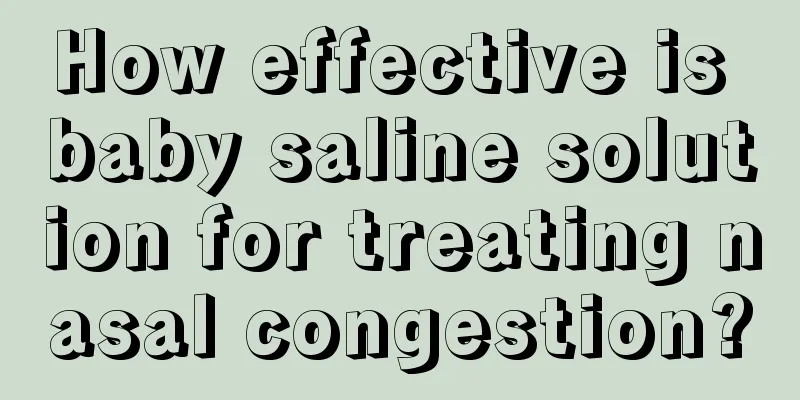What causes abdominal bloating in babies?

|
What causes abdominal bloating in babies? Our babies are the apple of every parent's eye from the moment they are born. We must pay attention to every problem of the baby and we must ensure that the baby grows up healthily. However, the baby will always have abdominal bloating for some reason. So what are the causes of abdominal bloating in babies? Let’s take a look with the editor below! Reason 1: Your baby swallows too much air When feeding your baby with a bottle, if the baby sucks too quickly, he or she may inhale too much air. If the nipple hole of the bottle is not of the appropriate size or the bottle is tilted, air may be inhaled into the baby's body through the gap in the nipple. Excessive crying in babies can also easily lead to bloating. Reason 2: Baby’s indigestion The accumulation of intestinal feces leads to the proliferation of gas-producing bad bacteria, and diseases such as milk protein allergy, lactose intolerance, and enteritis can cause indigestion in babies, all of which can easily produce a lot of gas. Reason 3: Baby’s gastrointestinal motility disorder Baby's abdominal bloating There are two types. One is purely functional, called "pseudo-intestinal obstruction"; the other is "congenital megacolon" in which the gastrointestinal tract truly lacks ganglia. Reason 4: Flatulence caused by tracheal lesions If the organs in the abdominal cavity are enlarged or have tumors, or if there is intestinal obstruction or ascites, it may also cause abdominal distension. However, bloating caused by organ diseases is less common in babies. Tips: How to prevent baby bloating? 1. Try not to let your baby cry. It is easy for babies to get bloated when they cry. In this situation, parents should give more comfort or hug him to avoid worsening of bloating by adjusting his emotions. 2. Don’t let your baby be hungry for too long before feeding. If your baby is hungry for too long, he will suck too quickly and swallow a lot of air. Therefore, you should feed your baby on time and encourage your baby to pass gas properly after feeding. 3. Massage your baby's abdomen more often, which will help gastrointestinal motility and gas discharge, thereby improving digestion and absorption. 4. When feeding, be sure to ensure that the milk fills the front end of the bottle nozzle and that there is no slope to prevent the baby from inhaling air. 5. Temporarily stop eating foods that easily ferment and produce gas in the digestive tract, such as sweet potatoes, apples, melons, etc. Through the above editor's introduction to baby's abdominal bloating, everyone has understood it. I believe that as long as every parent can pay attention to these problems, we can reduce the probability of abdominal bloating in babies. We hope that we can pay more attention to our babies in life. Once the baby has a problem, we should go to the hospital for examination and treatment immediately. |
<<: What are the dangers of anemia in babies?
>>: What should I do if my baby is infected with Mycoplasma pneumoniae?
Recommend
What causes cerebral palsy in children?
Cerebral palsy, whose full name is infantile cere...
What's wrong with a two-month-old baby who hasn't had a bowel movement for two days?
Many babies go several days without a bowel movem...
What are the methods of weaning children?
Everyone knows that newborn babies usually grow u...
The reason why two-month-old babies always fart
Two-month-old babies always fart, which makes man...
What is the reason why children are distracted in class?
Children's physical health is very important,...
What to do if a girl has a big belly
Having a perfect figure is very important for man...
What should I do if my four-month-old baby doesn't grow hair?
If your baby doesn't grow hair for four month...
The order of adding complementary food to children
When the baby is about four months old, we will s...
Treatment of acute gastroenteritis in children
The incidence of acute gastroenteritis in childre...
Does phimosis in children require surgery?
When it comes to the treatment of phimosis in chi...
What's going on when the baby has a fever, convulsions and rolls his eyes?
Nowadays, many people are particularly worried ab...
What should I do if my 4-year-old baby has allergies?
Children around four years old already have stron...
Don't buy these five types of cakes for your children
Many families prepare some desserts such as small...
What are the methods to reduce fever in children?
Fever in children is one of the common diseases i...
What's wrong with the newborn baby having small red spots all over his body?
Newborns have incomplete body functions and their...









